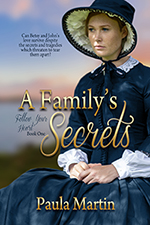Romance Novel 'Snobbery'?
In the past, I’ve had comments from two
different acquaintances that have made me think. Here is the gist of the
conversations.
First conversation:-
Her (with a smirk on her face): Please tell me you don’t
write for Mills and Boon.
Me: No, not now, but I wouldn’t mind being published by them
again.
Her (with mouth dropping open): Why? Their novels are
rubbish.
Me: How long is it since you read one?
Her: I haven’t read any. I wouldn’t be seen dead reading one
of that bodice-ripper kind of book.
Second conversation (on the phone with someone
I hadn’t seen for several years):-
Her: So what have you been doing with yourself?
Me: Actually I’ve been writing novels.
Her: Really? Have you had anything published?”
Me: Yes, over a dozen in the past ten years.
Her: Oh, well done. What are they about?”
Me: They’re romances.
Silence, then Her: Oh, sorry, I never read romances. They’re
so predictable, happy ever after and all that.
I’ve paraphrased these conversations, but you get the idea.
The first conversation made me realise the stereotypical
image of romance novels has persisted, at least for my generation, for 30+
years. The “bodice-rippers” were the hallmark of Mills and Boon/Harlequin in
the 1970’s and 1980’s, and, in my opinion, gave romance novels a bad rap. They
had archetypal characters and contrived plots, usually involving a virginal
heroine who was ‘rescued’ by a alpha hero, and often contained a barely
disguised rape scene. On the whole, this kind of novel has gone ‘out of
fashion’ (with a few notable exceptions which have dominated the
best-seller lists!). However, a kind of stigma still remains.
The second conversation made me wonder about the word
‘predictable’. Yes, romances have, if not a ‘Happy Ever After’ ending, then at
least a ‘Happy’ ending where the hero and heroine overcome the obstacles in the
path to reunite. Aren’t thrillers, detective stories, and mysteries equally
predictable? The goodies will triumph, the baddies will receive their
deserved punishment, and the crime or mystery will be solved. What’s the
difference? Why are romance novels considered predictable, while other genres
aren’t?
And why are romance novels considered by some to be the
‘lowest form of literature’? Why do people want to disassociate themselves from
reading romance novels? I’ve had a few reviews which start, “I don’t usually
read romances but …” as if that is somehow praiseworthy. It seems to be okay to
say you read thrillers or mysteries, but not the ‘done thing’ to admit to
reading romances, even though thousands (millions?) of women obviously do!
Have you come across this kind of ‘literary snobbishness’
and, if so, what’s your response?
Find me on Facebook: www.facebook.com/paulamartinromances
Link to my Amazon author page: author.to/PMamazon












.jpg)














